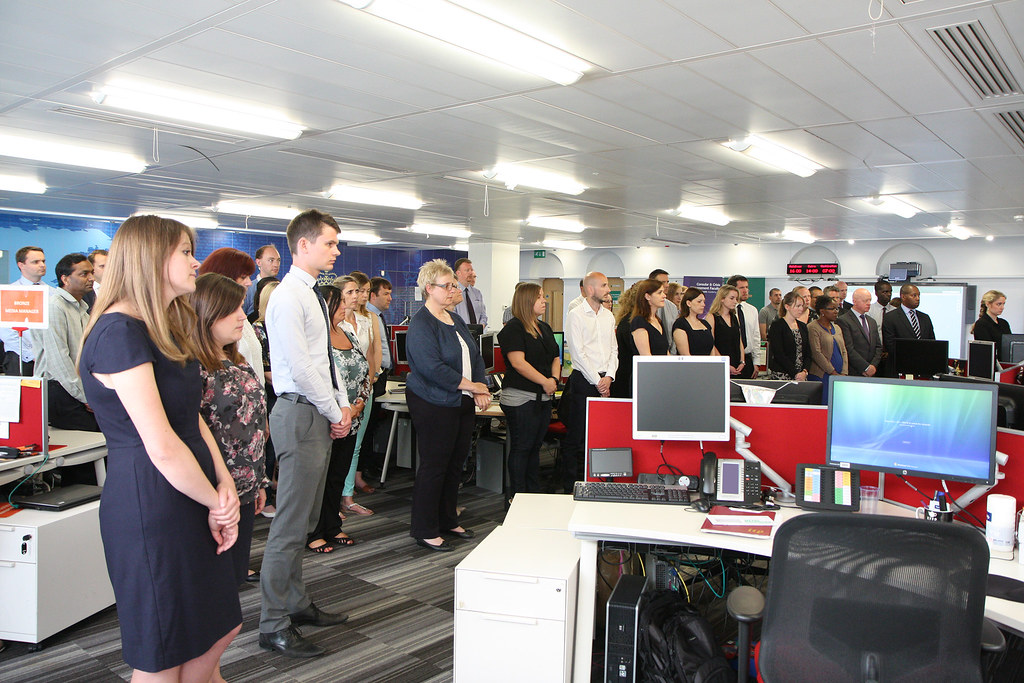Embodying resilience in the face of adversity, crisis management and outplacement have become the unsung heroes of modern organizational survival. In a world forever altered by the unrelenting shadow of the COVID-19 pandemic, the importance of crisis management and the art of effortlessly realigning a workforce has never been more apparent. As we peer through the looking glass and reflect upon the lessons learned from this unprecedented crisis, it becomes unequivocally clear that we must uncover the secrets to navigating turbulent times with grace and unwavering resolve. Join us on a journey as we delve into the labyrinth of crisis management and outplacement, uncovering invaluable knowledge that not only fortifies businesses but also elevates our spirit in the face of uncertainty. Brace yourself for a riveting exploration of practical wisdom, innovative strategies, and inspiring stories from the COVID-19 battlefield – a compendium unlike any other, held together by the common threads of adaptability and human resilience.
1. Navigating Uncharted Waters: Adapting Crisis Management Strategies in the Midst of a Global Pandemic
As the world continues to grapple with the unprecedented challenges posed by the ongoing global pandemic, organizations are finding themselves in uncharted waters when it comes to crisis management. The traditional playbook no longer holds all the answers, and businesses of all sizes must adapt their strategies to navigate these uncertain times.
In order to thrive in these circumstances, leaders must reimagine their crisis management approach by emphasizing flexibility, collaboration, and innovation. Here are a few key strategies to consider:
- 1. Rapid Response: Reacting quickly and decisively is crucial when dealing with unforeseen challenges. Establish a dedicated crisis response team that can swiftly assess the situation, make informed decisions, and communicate updates to employees, stakeholders, and customers.
- 2. Communicate, Communicate, Communicate: Effective communication is paramount in times of crisis. Establish clear lines of communication with all stakeholders, keeping them informed about any changes or updates. Utilize various channels, such as email, social media, and virtual meetings, to ensure everyone receives critical information in a timely manner.
- 3. Foster Collaboration: In order to adapt and overcome crises, it is essential to foster a collaborative and inclusive environment. Encourage your team to contribute ideas and solutions, and create opportunities for cross-departmental collaboration to leverage diverse perspectives and expertise.
- 4. Prioritize Employee Well-being: Support your employees by implementing measures that prioritize their health, safety, and mental well-being. Provide resources for remote work, establish flexible schedules, and encourage open communication to help alleviate stress and anxiety.
By embracing these strategies and adapting to the unique challenges presented by the current global pandemic, organizations can navigate these uncharted waters with resilience, ensuring their continued success and growth even in the face of uncertainty.
2. Resilience in the Face of Adversity: Outplacement Strategies for Organizations during COVID-19
In these unprecedented times, organizations across the globe are grappling with the challenges posed by the COVID-19 pandemic. As companies navigate the uncertain landscape, resilience becomes a critical attribute for survival and sustainable growth. To assist organizations in weathering the storm, implementing effective outplacement strategies becomes paramount. Here are some strategies that can help organizations maintain their resilience in the face of adversity:
- Providing Emotional Support: Ensuring the well-being and mental health of employees during these trying times is essential. Outplacement programs should focus on offering emotional support, counseling, and resources to help individuals cope with the stress and anxiety brought about by the pandemic.
- Building Skills for Remote Work: With the sudden shift towards remote work, organizations need to equip their workforce with the necessary skills and tools to adapt to this new work culture. Training programs for virtual communication, time management, and collaboration can empower employees to remain productive and connected.
- Facilitating Career Transition: As organizations restructure and downsize, facilitating career transition for affected employees is crucial. Outplacement services should include personalized career coaching, resume building, and job search assistance to help individuals navigate the job market effectively.
- Fostering a Culture of Resilience: Organizations must cultivate a resilient culture by promoting open communication, empathy, and flexibility. Encouraging employees to share their experiences, ideas, and insights can create a supportive environment that fosters resilience and adaptability.
By implementing robust outplacement strategies, organizations can not only overcome adversity but also emerge stronger from the challenges imposed by the COVID-19 crisis. In these uncertain times, resilience becomes a powerful tool that drives organizations towards sustained success and growth.
3. Lessons from the Frontlines: Case Studies in Effective Crisis Management and Outplacement during the Pandemic
In this section, we dive into real-life case studies that highlight the power of effective crisis management and outplacement strategies during the global pandemic. These stories provide valuable insights and actionable lessons for organizations navigating through uncertain times. Through these examples, we witness firsthand the creativity, resilience, and adaptability displayed by companies that successfully weathered the storm.
Case Study 1: Transforming Adversity into Opportunity
- Explore how Company X, a leading retail giant, not only survived but thrived during the pandemic.
- Learn the strategic decisions made by their leadership team that allowed them to pivot their business model quickly.
- Discover the innovative outplacement methods employed to support and retain their talented workforce.
- Understand how Company X’s proactive crisis management approach and employee-centric focus contributed to their remarkable success.
Case Study 2: Navigating Uncharted Territory
- Delve into the challenges faced by Company Y, a small family-owned business, as they faced an unprecedented crisis.
- Uncover the behind-the-scenes decision-making process that enabled them to adapt and survive a tough market.
- Learn about their creative outplacement strategies, including remote work setups and upskilling initiatives, that ensured their employees’ long-term employability.
- Gain insight into the emotional and mental support provided to Company Y’s workforce during the crisis, fostering a strong sense of unity and loyalty.
4. Paving the Road to Recovery: A Holistic Approach to Crisis Management and Outplacement in the Post-COVID Era
As we navigate the challenging landscape of the post-COVID era, it becomes increasingly clear that a comprehensive and holistic approach is paramount in managing crises and facilitating successful outplacement. The road to recovery may seem daunting, but by adopting innovative strategies and tapping into the power of collective resilience, organizations can overcome unforeseen hurdles and emerge stronger than ever.
Embrace Change: The first step towards paving the road to recovery is acknowledging the need for change and embracing it wholeheartedly. In the wake of global upheaval, businesses must be willing to adapt their operational models, systems, and processes to suit the new normal. This might involve reevaluating existing strategies, investing in digital transformations, and fostering a culture of flexibility and innovation.
Cultivate Empathy: Crisis management in the post-COVID era demands a keen focus on people. Recognizing the emotional toll and personal challenges faced by employees, organizations must prioritize empathy and support. Providing mental health resources, establishing open lines of communication, and promoting a work-life balance are essential pillars of holistic recovery. By fostering a compassionate environment, businesses can not only retain valuable talent but also boost the overall morale and well-being of their workforce.
In the wake of the unprecedented COVID-19 pandemic, crisis management and outplacement have emerged as indispensable strategies for organizations worldwide. As we navigate through the turmoil and reflect on the lessons learned, it becomes evident that this crisis has served as a catalyst for innovation and resilience.
The tumultuous journey we embarked upon in the midst of uncertainty has transformed the way we perceive crisis management. Organizations have swiftly adapted to the rapidly changing landscape, demonstrating a remarkable ability to pivot their operations and harness remote work capabilities. Through a bareknuckled fight against the odds, they have shown us that crises can be opportunities for growth, metamorphosing the traditional workplace and redefining the boundaries of what was thought possible.
Outplacement, too, has evolved beyond its conventional scope, providing a vital lifeline for displaced employees in search of new opportunities. The pandemic has taught us that true empathy lies in not only helping individuals find their footing in unfamiliar territory but also equipping them with the necessary tools to thrive. As organizations find creative ways to support their workforce during these trying times, the concept of outplacement has transcended mere job searches, fostering an enduring sense of community, mentorship, and empowerment.
Through this journey of introspection, we have come to realize that the principles guiding crisis management and outplacement are not mere theories confined to the pages of business textbooks. They embody the essence of human resilience, adaptability, and compassion. They remind us that out of chaos, innovation blooms, and that even amidst overwhelming adversity, we possess the strength and collective spirit to weather the storm.
As we bid farewell to the turbulent times of the COVID-19 era, let us remember the invaluable lessons we have gained from this long and arduous journey. Let us hold close the silver linings that emerged from the clouds of uncertainty. For it is in our ability to embrace change, support one another, and forge ahead with unwavering determination that we find the true essence of crisis management and outplacement.
So, let us emerge from this chapter stronger, wiser, and united, paving the way for a future that embodies the spirit of resilience and compassion. The lessons learned from this crisis will not be forgotten, but rather etched in the annals of history as a testament to our unwavering resolve. And just as the world has been forever changed, so have we, emerging from the depths of crisis with renewed purpose and the knowledge that together, we can overcome even the most daunting challenges.







